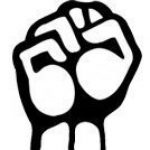 Around the world popular protests are changing the political equilibrium. In Egypt, Yemen, Bahrain and Tunisia, and in different ways in Syria and Libya people are taking decisions and protesting to overturn despotic regimes. In Israel, 3,383 tents have been erected on city streets by lower middle class and working class Israelis, mostly Jews but also some Palestinians, calling for social justice – , fairer incomes, social housing, better education and health provision in a country whose economy is powered by its military and by the occupation of Palestinian lands. The three weeks protests have been peaceful and creative with 300,000 people demonstrating for social justice. The police is now considering dismantling the tents (because of Tel Aviv residents’ complaints about noise in their leafy streets, but also in preparation for September’s Palestinian state declaration, which the Israeli army and police are preparing to subdue), but Prime Minister Netanyahu has pleaded with the police not to dismantle the tents – he is terrified of the consequences of not being seen to side with those whose demands he knows are justified.
Around the world popular protests are changing the political equilibrium. In Egypt, Yemen, Bahrain and Tunisia, and in different ways in Syria and Libya people are taking decisions and protesting to overturn despotic regimes. In Israel, 3,383 tents have been erected on city streets by lower middle class and working class Israelis, mostly Jews but also some Palestinians, calling for social justice – , fairer incomes, social housing, better education and health provision in a country whose economy is powered by its military and by the occupation of Palestinian lands. The three weeks protests have been peaceful and creative with 300,000 people demonstrating for social justice. The police is now considering dismantling the tents (because of Tel Aviv residents’ complaints about noise in their leafy streets, but also in preparation for September’s Palestinian state declaration, which the Israeli army and police are preparing to subdue), but Prime Minister Netanyahu has pleaded with the police not to dismantle the tents – he is terrified of the consequences of not being seen to side with those whose demands he knows are justified.
 In Britain, in response to the police killing an unarmed young black man, and when peaceful protests did not receive a satisfactory answer as to the why of this murder, widespread riots were the expression of both the disenfranchisement of large swathes of disadvantaged youths and – it has to be said – also of unchecked greed. Whatever the reason, the result was devastating.
In Britain, in response to the police killing an unarmed young black man, and when peaceful protests did not receive a satisfactory answer as to the why of this murder, widespread riots were the expression of both the disenfranchisement of large swathes of disadvantaged youths and – it has to be said – also of unchecked greed. Whatever the reason, the result was devastating.
Meanwhile in backwater Ireland, there is a quiet debate about equality. A good thing, you might think, but not when the discussants are right wing apologist John Waters – an Irish Times columnist with an anti-gay and anti-feminist agenda – and the departing chairperson of the Equality Authority Angela Kerins. Both write about equality in the Irish Times on August 12.
Kerins makes a case for a robust equality agenda, in the wake of the emasculation of the Equality Authority in 2009, leading to the resignation of its effective CEO Niall Crowley. Her equality agenda, however, is called ‘diversity’ – not exactly the same. Unsurprisingly she supports government plans to amalgamate the EA with the Irish Human Rights Commission, and advocates the amalgamation of the various statutory bodies and NGOs working on equality issues. She does not mention the closure of Combat Poverty and the demise of the National Consultative Committee on Racism and Interculturalism (NCCRI), nor former Minister for Justice Michael McDowell who in 2004 said in an interview with The Irish Catholic that ‘inequality is an incentive in the Irish economy’. I have little doubt that if Kerins had it her way, most migrant-led and migrant-support associations would be disbanded, or at least not given any funding. Luckily, it is not up to her, migrant-led associations are stronger than ever, even in the current miserly economic climate.
Not surprisingly (for an EA chair who has made no intervention since her appointment), Kerins’s main point is economic: ‘human capital, diverse skills, talents and experience [not equality, mind] are essential components of economic recovery’. Furthermore, she argues that diversity is ‘a significant component to attracting inward investment’. , According to Kerins, the Republic of Ireland is emerging from the doldrums (tell that to the thousands of people in debt and on the live register), justifying her ideas about amalgamation and an economically driven ‘diversity’ agenda.
If Kerins’s ideas about equality are based on economics and rationality, John Waters is altogether opposed to the very notion of equality which, to him, together with ‘failed multiculturalism’, is the root cause of the riots in Britain and all other social ills. However, while Kerins advocates equality as an engine for economic growth, he advocates, like McDowell before him, inequality as the main force of wealth generation. And underneath his carefully crafted argument that the pursuit of equality leads to a greedy search for wealth, lies naked racism. When describing the British riots he writes: ‘we observed looting of a kind of shopping without money, a defiant act of participation followed, inevitably, by a destructive one. Having stripped the Mosque of Mammon, the looters burned it down’. How interesting that it is now Muslims, rather than Jews, who are seen as the controllers of the world’s wealth. And all that in the name of what Waters considers the mistaken idea that ‘all human beings should be equal’.

You must be logged in to post a comment.